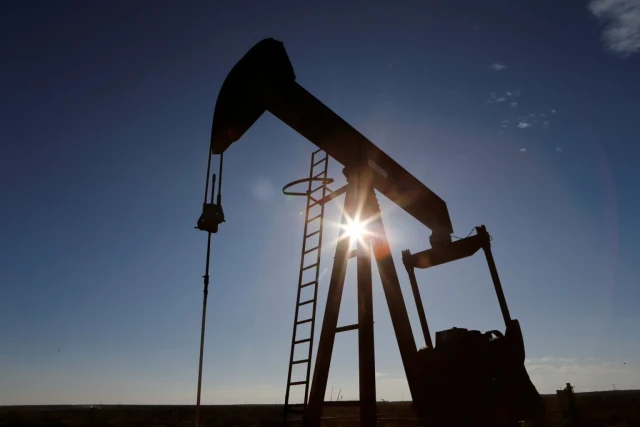Amid the increasing tensions between Israel and Iran, Nigeria's crude oil prices surged to nearly $80 per barrel in the international market yesterday. The three main oil types Bonny Light, Brass River, and Qua Iboe were priced at $77.86, $77.90, and $71.95 per barrel, respectively.
Prices for other global oil grades also saw a rise, with Brent crude climbing over 7 percent to $74.82 per barrel, while West Texas Intermediate (WTI) increased to $73.53 per barrel.
This uptick in oil prices has been linked to the heightened hostilities between Israel and Iran, which have introduced volatility into the global oil market, prompting traders to react nervously to potential major supply disruptions from a region responsible for about one-third of the world's oil production.
Israel initiated coordinated airstrikes against Iran, dubbed Rising Lion, targeting nuclear facilities in a decisive effort to prevent the Islamic Republic from achieving nuclear capabilities.
The Israeli military confirmed the operation through its official Telegram channel, indicating that numerous fighter jets attacked nuclear sites throughout Iran.
Strikes continue to be reported in several cities, including fresh attacks in Tehran according to Iranian state media. Iran's Supreme Leader Ayatollah Ali Khamenei warned Israel to "expect severe punishment" in response to what he termed a "crime" for attacking Iran and killing several senior military personnel and six nuclear scientists.
Israeli Prime Minister Benjamin Netanyahu stated that Israel coordinated with the United States prior to the attack, asserting that the Trump administration "was aware of the strike.”
In a pre-recorded message released Friday afternoon, Netanyahu remarked, "We informed them beforehand; they were aware of the strike.”
He emphasized that it was up to President Trump to respond independently, and he refrained from speaking for him, remarking that Trump has been clear and assertive in his stance against Iran obtaining nuclear weapons and enrichment capabilities.
U.S. President Donald Trump expressed support for Israel's actions, labeling the Israeli strikes as "excellent" and indicated that Iran still has an opportunity to negotiate a deal regarding its nuclear program before the country faces dire consequences. Israeli officials elaborated that the primary objective of the airstrikes was to undermine Iran’s nuclear initiative, perceived as an existential threat.
Israel had shut down its airspace and readied its military for possible Iranian retaliation. Prime Minister Netanyahu convened his cabinet post-strikes, calling the event "a defining moment in Israel’s history."
He noted that the operation aimed at the core of Iran’s nuclear enrichment activities, stating, "We hit the center of Iran’s nuclear weaponization efforts, targeting key enrichment facilities in Natanz and influential nuclear scientists. We also focused on Iran’s ballistic missile initiatives."
He added that "the operation could extend for as long as necessary," as the Israeli government aims to prevent "the world's most perilous regime from acquiring the world’s most dangerous weapons."




















